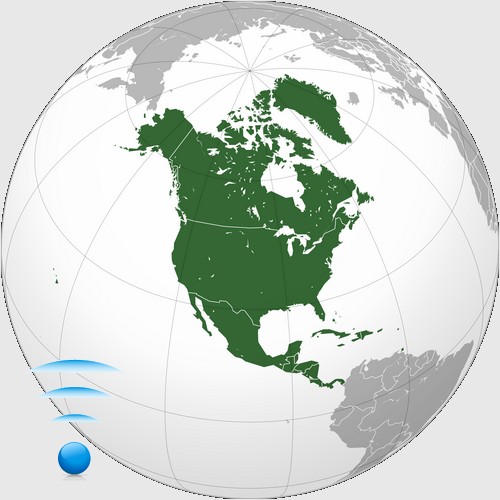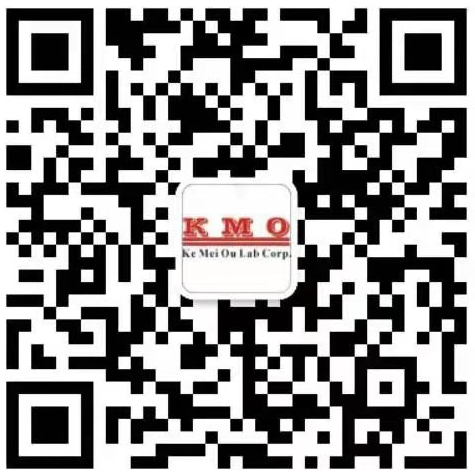
KMO is a leading supplier of radio frequency network technology testing and certification. We KMO can provide customers with pre-certification testing to assist in product development. Our KMO facilities are fully certified, and the improvement of the laboratory is prioritized in accordance with the market to meet the changing needs of customers.
Without data transmission through radio waves, modern life is unimaginable. The radio frequency market is a thriving and dynamic industry. In our rapidly developing global communication network at KMO, high-speed digital transmission of data and voice via radio and satellite is becoming more and more important.
The radio communication system must comply with the technical standards of each country or community. KMO has the necessary expertise, accredited laboratories (ISO/IEC 17025) and the most advanced measuring equipment to support the development and conformance testing of electronic devices with integrated radio technology. Our KMO test range covers many traditional and new radio technologies, such as Bluetooth, satellite radio, LoRa, microwave radio relay, SRD, Wi-Fi, ZigBee, etc.
Our KMO queue appointment time is only 3 days at the fastest, and our KMO provides instant online order value-added services. By bundling mobile terminals with other testing and certification requirements (telecom access, mobile access, radio frequency, electromagnetic compatibility, safety, environment, energy efficiency, performance, etc.), time and money can be saved. With KMO, you will eliminate the hassle of using multiple laboratories, logistics delays and transportation costs.
Our KMO radio frequency testing & certification services include:
*Aeronautical Radio
*Automotive Radio vehicle radio frequency device
*Bluetooth
*DECT digital enhancement technology
*LPWAN-SIGFOX-LORA
*Microwave Radio
*PMR and relay radio
*RFID Radio Frequency Identification
*Satellite Radio satellite radio frequency device
*Short Range Devices
*UWB Testing
*WiFi wireless Internet access
*etc.
United States
The Federal Communications Commission (FCC) is responsible for regular interstate and international communications, such as televisions, wires, satellites, and cables. It involves more than 50 states in the United States, Colombia and the United States attributable areas.
The main laws and regulations related to the market access of communication equipment are as follows:
Chapter 47 of the United States Code (USC)-on telegraph, telephone and radio communications;
(COMMUNICATIONS ACT);
(TELECOMMUNICATIONS ACT);
Telecommunications Law" (TELECOMMUNICATIONS ACT); Chapter 47 of the Code of Federal Regulations (CFR)-About Telecommunications.
(1) "United States Code": The "United States Code" is a permanent collection of American laws formulated and published by the Law Revision Committee of the House of Representatives. It is compiled according to themes, and a total of 50 articles are compiled and published every six years. Among them, the 47th is about the laws and regulations of telegraph, telephone and radio communication, which can be said to be the permanent legal basis of the American communication laws and regulations. For related content, please refer to Chapter 47 of the United States Code.
(2) The Communications Act and the Telecommunications Act: The promulgation of the United States Communications Act in 1934 and the establishment of the Federal Communications Commission marked the beginning of independent control of the communications industry in the United States. The "Communications Law" stipulates the FCC's organizational structure, scope of responsibilities, and regulatory requirements to supervise and at the same time promote competition in telecommunications services. At the same time, it stipulates the basic rules of telecommunications operations and radio communications, as well as penalties for violations of communications regulations.
The 1996 U.S. Telecommunications Act is an amendment, supplement and improvement to the Telecommunications Act. Further opening up telecommunications services, developing competitive markets, encouraging the interconnection of telecommunications services, liberalizing local and long-distance calls, and breaking the boundaries of technology, business, and capital. The US communications market has entered a stage of full market competition.
In fact, in the United States, these two laws have now been combined into a complete law for use, and the name is still the "U.S. Communications Act." For specific content, please refer to the "U.S. Communications Act."
(3) The Code of Federal Regulations (CFR); Chapter 47 of the Code of Federal Regulations of the United States is about telecommunications regulations (that is, 47CFR), which implements the United States Code and the United States Communications Act (including the Communications Act of 1934 and 1996). Telecommunications Law). The specific implementation content of telecommunications control. Related content can refer to 47CFR.
Our KMO laboratory has complete radio frequency testing capabilities of the United States FCC and FCC CAB accreditation, and can directly issue FCC accredited reports. KMO can provide customers with testing services as follows:
FCC Part 15, Subpart B
FCC Part 18
FCC Part 15 Subpart C
FCC Part 15, Subpart D
FCC Part 15, Subpart E
FCC Part 15, Subpart E
FCC Part 15, Subpart F
FCC Part 15, Subpart G
FCC Part 15, Subpart H
Part 22 (cellular), Part 24, Part 25 (below 3 GHz), Part 27
Part 22 (non-cellular), Part 90 (below 3 GHz), Part 95 (below 3 GHz), Part 97 (below 3 GHz),Part 101 (below 3 GHz)
Part 96
Part 25 (above 3 GHz), Part 30, Part 74, Part 90 (above 3 GHz), Part 95 (above 3 GHz), Part 97 (above 3 GHz) Part 101
Part 73, Part 74 (below 3 GHz)
Part 80, Part 87
Part 20, Part 90.219
【Online Order】
Canada
Innovation, Science and Economic Development Canada_ISED The Department of Trade and Commerce was created in statute on June 23, 1887 and proclaimed into force on December 3, 1892. In 1969 the Department of Trade and Commerce was replaced by the Department of Industry, Trade and Commerce. In 1990, Industry, Science and Technology replaced Industry, Trade and Commerce. This new department also absorbed the offices of the Minister of Regional Industrial Expansion and Minister of State for Science and Technology. This marked the inclusion of regional approaches and scientific emphasis in the development of Canadian industries. In 1993, the department expanded its portfolio further to include Consumer and Corporate Affairs. In March 1995, the department was renamed Industry Canada.
Upon the November 2015 installation of the 29th Canadian Ministry led by Prime Minister Justin Trudeau , the position of Minister of Industry was renamed Minister of Innovation, Science, and Economic Development . Subsequently, applied title under the Federal Identity Program was changed from Industry Canada to Innovation, Science and Economic Development Canada. The Department headquarters are located at the CD Howe Building at 235 Queen Street in Ottawa , Ontario.
ISED has three core responsibilities. These responsibilities are to oversee Canadian companies, investment and growth; people, skills and communities; and science, technology, research and commercialization. It addresses these responsibilities by doing work in four areas. These areas are research and development; economic development; market integrity, regulation, and competition; and internal services. This work is done by distributing grants and contributions, providing programs and services, managing federal activities, and overseeing relevant regulation and legislation.
Our KMO laboratory has complete radio frequency testing capabilities of the Canada ISED and ISED CAB accreditation, and can directly issue ISED accredited reports. KMO can provide customers with testing services as follows:
RSS-102 (RF Exp.)
RSS-GEN RSS-111 RSS-112 RSS-117 RSS-119 RSS-123 RSS-125 RSS-127 RSS-130 RSS-131 RSS-132 RSS-133 RSS-134 RSS-135 RSS-137 RSS-139 RSS-140 RSS-142 RSS-170 RSS-181 RSS-182 RSS-191 RSS-192 RSS-194 RSS-195 RSS-196 RSS-197 RSS-199 RSS-210 RSS-211 RSS-213 RSS-215 RSS-216 RSS-220 RSS-222 RSS-236 RSS-238 RSS-243 RSS-244 RSS-246 RSS-247 RSS-251 RSS-252 RSS-287 RSS-288 BETS-1
【Online Order】
Mexico
As of September 2013, Mexican telecommunications agency, Federal Telecommunications Commission (COFETEL), has been replaced by IFETEL (Federal Institute of Telecommunications). IFETEL is in charge of Mexico telecom type approval processes for all equipment that require local testings for import to Mexico.
IFETEL’s responsibilities include:
Defining the radiofrequency bands to be used for telecommunications and broadcasting that can be utilized by concessionaires;
Granting concessions and approve any concessions transfer;
Issuing/updating regulations for the telecom industry;
Identifying and regulating monopolies.
All products that use a frequency to transmit and/or receive signals and all telecom products that connect to the PSTN or public network must be certified by IFETEL. Equipment utilizing the following frequency bands: 902-928 MHz, 2400-2483.5 MHz, and 5725-5850 MHz require in-country testing.
Our KMO laboratory can provide clients with agency application services. For specific details and needs, please contact our KMO!
【Online Order】
 Follow us for the latest news
Follow us for the latest news Working hours: 9:00-18:30, Monday to Friday
Contact:Lisa Liu
Mobile:18028790769
Email: kmo@kmolab.com
Address:Room 2013, 20th Floor, Business Center, Jiahui Xin Cheng, No 3027, Shen Nan Road, Fu Tian, Shen Zhen, Guang Dong, China
